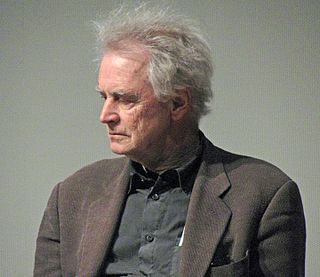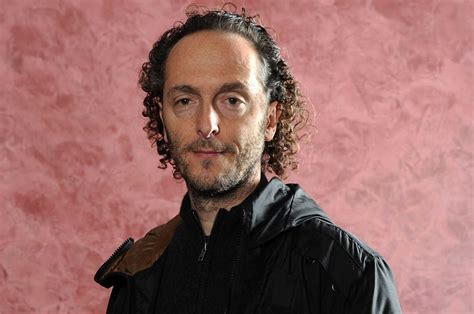A Quote by Roger Ebert
Film theory has nothing to do with film. Students presumably hope to find out something about film, and all they will find out is an occult and arcane language designed only for the purpose of excluding those who have not mastered it and giving academic rewards to those who have. No one with any literacy, taste or intelligence would want to teach these courses, so the bona fide definition of people teaching them are people who are incapable of teaching anything else.
Related Quotes
The only way I know as a director is to figure out what the film is about. And out of the theme and the sense of what the film is about, all those decisions start to make sense. But to find that truth within it, you have to limit your possibilities and limit your choices. That's where this visual language grows out of.
I earn my living by teaching film, mostly filmmaking but also teaching courses on current cinema. I'm interested in movies. I hope that's not all I'm interested in. In that sense, it's maybe a little misleading. I don't expect to make another movie about films, but I may continue to write about them.
To me, a revolutionary film is not a film about a revolution. It has a lot more to do with the art form. It's a film that is revolting against the old established language of cinema that had been brainwashing the people for decades. It is a film that is trying to find ways to use sound and image differently.
I applied [to film school] figuring, "I need to find some structure for myself. I need to find a way to figure out what kind of filmmaker I want to be." And that is what film school provides you with. It'll teach you the basics of how a production works and the technical side of how to put everything together, but you could also learn that by working on film sets.
It makes it very easy. I have a beginning, middle, and end, and I don't film for long - about 20 hours usually for a two-hour film - so it's easily watchable in a week for me and the editor. Once I know who the characters are, I only film those characters, unless somebody else forces their way into the film by a scene happening to them or we meet them by chance.
Psychologists would say that the only two important forms of social learning are imitation and teaching, and they will spend time trying to figure out if animals imitate or teach. Sometimes they find they do; sometimes they find they don't. And so that's kind of the level of controversy there. Biologists would include imitation and teaching and a range of other kinds of social learning. So we would call that culture, whereas the psychologist wouldn't.
Well, the traveling teachers do come through every few months," said the Baron. "Yes, sir, I know, sir, and they're useless, sir. They teach facts, not understanding. It's like teaching people about forests by showing them a saw. I want a proper school, sir, to teach reading and writing, and most of all thinking, sir, so people can find what they're good at, because someone doing what they really like is always an asset to any country, and too often people never find out until it's too late.
I was indeed a snob, if you agree with this definition: 'A person who believes that their tastes in a particular area are superior to those of other people.' I do believe that. Not superior to all other people, but to some, most probably including those who think Transformers: Revenge of The Fallen is a great film. That is not simply ego on my part. It is a faith that after writing and teaching about films for more than 40 years, my tastes are more evolved than those of a fanboy.
My hope is that the film Wall Street 2 will actually serve as a way for us to bridge that gap between Wall Street and Main Street. Certainly that's dealt with in the film of how it does affect everybody, so, you know, I always find that when you can create a movie or a play or a book that gives somebody a safe theoretical place to discuss what is really going on in the day it tends to forward discussion, so that would be my hope coming out of the film.



































